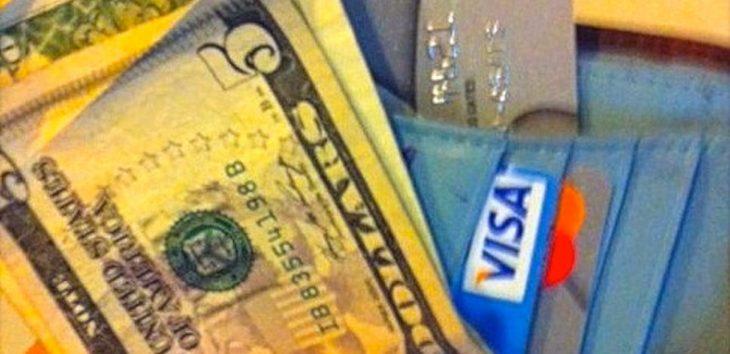Wal-Mart sues Visa, says the credit card company’s debit card protocol is less secure
by May 11, 2016 5:09 pm 351 views

The long and often bitter conflict between retailers and credit card companies continues as Wal-Mart Stores filed suit against Visa in New York state court earlier this week. The retail giant claims the card processing protocol Visa advocates with Wal-Mart is less secure than the chip-and-pin method the retail and banking industries are widely adopting.
Wal-Mart claims in its filing that Visa is advocating for a riskier method of verification for debit transactions using signatures instead of the chip-and-pin method that has been employed throughout Europe and other parts of the world with the U.S. being one of the last countries to adopt.
“Visa has acknowledged in many other countries that chip-and-pin offer greater security,” Wal-Mart spokesman Randy Hargrove said in a statement. “Visa nevertheless has demanded that we allow fraud-prone signature verification for debit transactions in our U.S. stores because Visa stands to make more money processing those transactions.”
That is the basis for the suit, in that Visa’s signature verification requires transactions be routed through its own networks which is a way for it to earn more money. Wal-Mart notes in the filing that the chip-and-pin payment system is not only more secure but it also allows for routing through less expensive networks.
In the suit Wal-Mart said debit cards account for 70% of all card purchases at the store. A debit card transaction requires a pin number be entered. If the debit cards are processed as credit transactions only a signature is required.
Ryan King, CEO of Fort Smith-based Guardian Payment Systems, told Talk Business & Politics that when a consumer chooses the debit card payment and enters a pin the transaction is routed through one of the several national bank clearing houses. The normal charge to the retailer is 0.11%. If the debit card is used like a credit card with a signature and no pin, the transaction must be routed through either Visa, MasterCard or Discover, whichever brand is on the card. That charge includes a 2-cent transaction fee and an additional 0.11% on top of the standard interchange fees.
King, whose company handles card processing for various industries, said it makes sense that Wal-Mart is pushing for the use of pin codes because it’s an added level of security over a signature which can be easily faked – and it also raises the costs for the retailer. He said for smaller merchants the issue is not as pressing, but with the size of Wal-Mart the added costs of using Visa’s clearing services would be substantial.
King said consumers want security, but not everyone knows their pin code. He said it would be much simpler if the pin codes were required to complete a debit transaction, but retailers can’t run the risk of losing sales if a customer doesn’t know the pin. That’s why there is a credit option given at most payment terminals, even though it is not a credit transaction in the true sense. For the consumer it is the same either way, but for the retailer, it’s costlier for them if the credit option is chosen because of the added fees by Visa on top of the interchange fee charged by the bank clearing houses who settle the transaction.
Another issue is the language used in the payment terminals when a chip-and-pin card is used. The choices for processing are: “Visa Debit” or “U.S. Debit.” King said most people will choose “Visa Debit” because that’s what they know. When choosing “Visa Debit” that activates that processing network and creates added charges. He said if the consumer chooses the “U.S. Debit” option then the transaction is completed through one of the national bank clearing houses at a lower overall cost to retailer.
King said Visa is trying to control its distribution network because it’s not a card issuer but merely a branded card processor. Visa earns its revenue by fixed fees associated with transaction usage and via card processing of transactions.
He said Visa, MasterCard and Discover wield a great deal of control over transaction fees regarding credit and debit card usage. King said that is the main reason retailers like Apple, Google and Wal-Mart are working to create mobile pay systems using smartphones. King doesn’t think mobile pay will soon become mainstream because there is no incentive for consumers to use it and incentivizing it would be more expensive than the traditional interchange fees associated with credit and debit card processing.
“The only way to level the playing field for retailers and card processors is through some type of legislation,” King said. “The card processors have a monopoly at this point in setting rates.”
Interchange fees were part of the controversial Dodd-Frank banking legislation approved in 2010 in that the fees were sharply lowered at the bank’s expense.
Supporters said the measure, sponsored by U.S. Sen. Dick Durbin, D.-Ill., would lower prices for consumers by cutting retailers’ costs. But when the rules took effect in 2011, big banks started recouping lost revenue, up to $14 billion a year, according to a 2014 Federal Reserve paper. Meanwhile merchant groups say interchange fee costs have dropped and there should be more swipe fee changes enacted.
